
Palmr is an open-source file-sharing platform designed for secure, efficient, and user-friendly file transfers. Built with performance and privacy in mind, it serves as a robust alternative to services like WeTransfer, SendGB, Send Anywhere, and Files-fm. The platform, currently in version 3, offers features such as password-protected uploads, user management, and integration with S3-compatible storage providers for flexible and scalable file storage. Palmr includes a streamlined interface with accessibility improvements, a built-in configuration panel for easy SMTP setup. Its lightweight design and focus on security make it ideal for both individual and enterprise use, with a simple process for uploading files and managing users. In this step by step guide I will show you how to install Palmr on your Synology NAS using Docker & Portainer.
This guide works perfectly with the latest Palmr v3.3.2 release.
STEP 1
Please Support My work by Making a Donation.
STEP 2
Install Portainer using my step by step guide. If you already have Portainer installed on your Synology NAS, skip this STEP. Attention: Make sure you have installed the latest Portainer version.
STEP 3
Make sure you have a synology.me Wildcard Certificate. Follow my guide to get a Wildcard Certificate. If you already have a synology.me Wildcard certificate, skip this STEP.
STEP 4
Go to Control Panel / Login Portal / Advanced Tab / click Reverse Proxy. Follow the instructions in the image below.
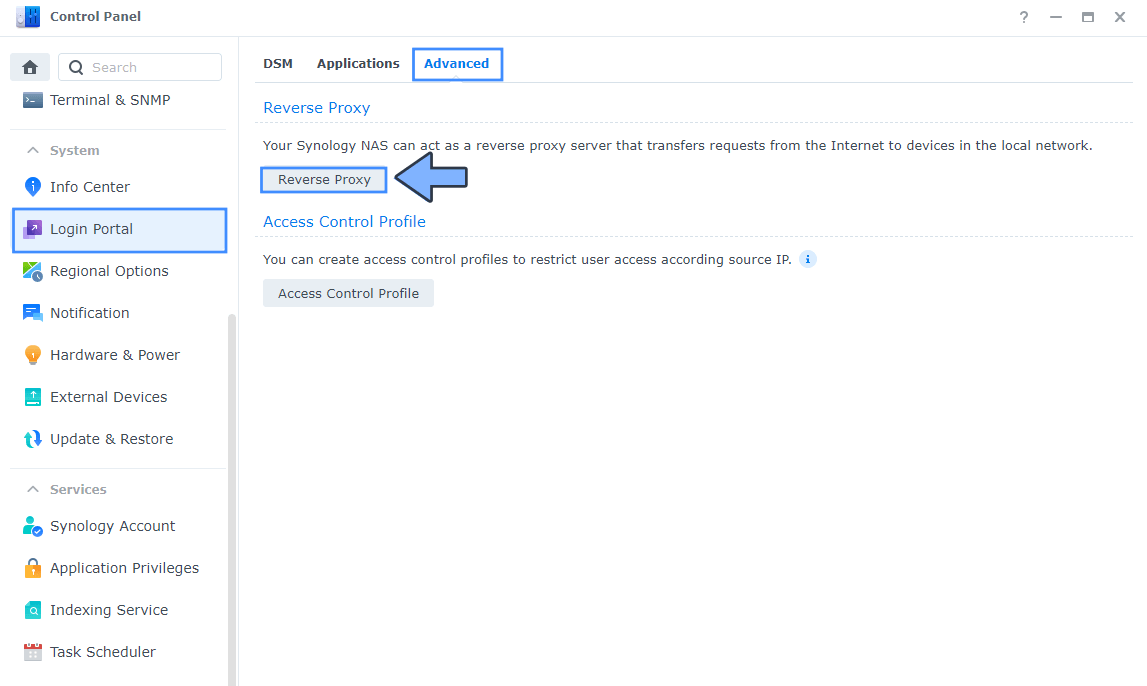
STEP 5
Now click the “Create” button. Follow the instructions in the image below.
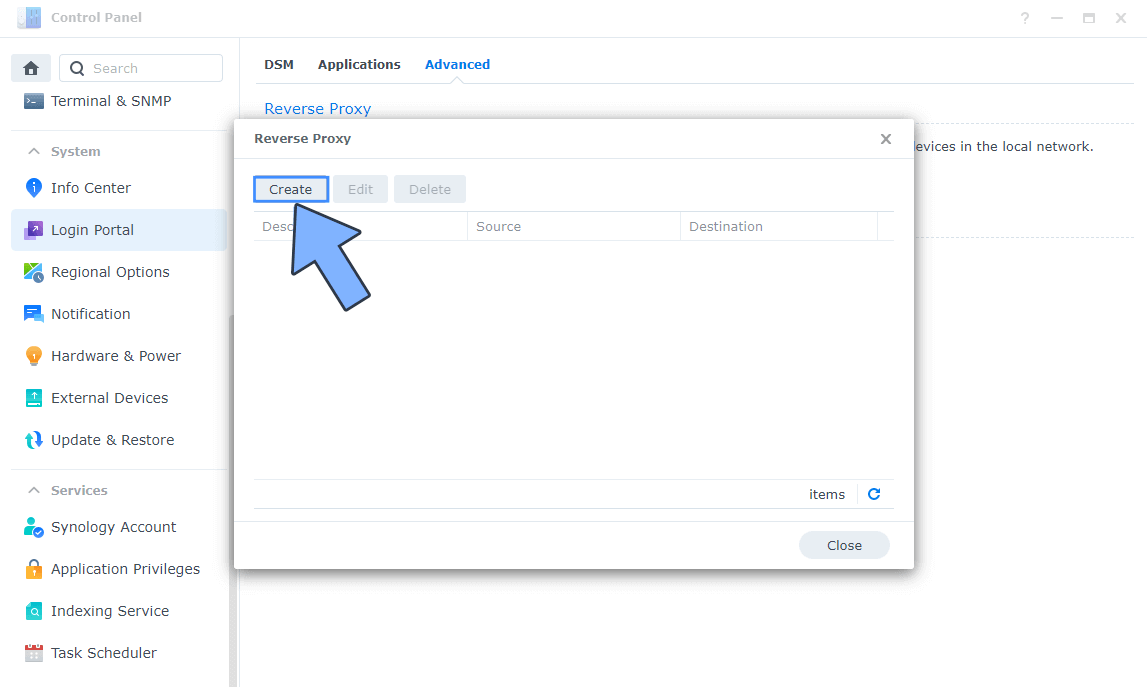
STEP 6
After you click the Create button, the window below will open. Follow the instructions in the image below.
On the General area, set the Reverse Proxy Name description: type in Palmr. After that, add the following instructions:
Source:
Protocol: HTTPS
Hostname: palmr.yourname.synology.me
Port: 443
Check Enable HSTS
Destination:
Protocol: HTTP
Hostname: localhost
Port: 5487
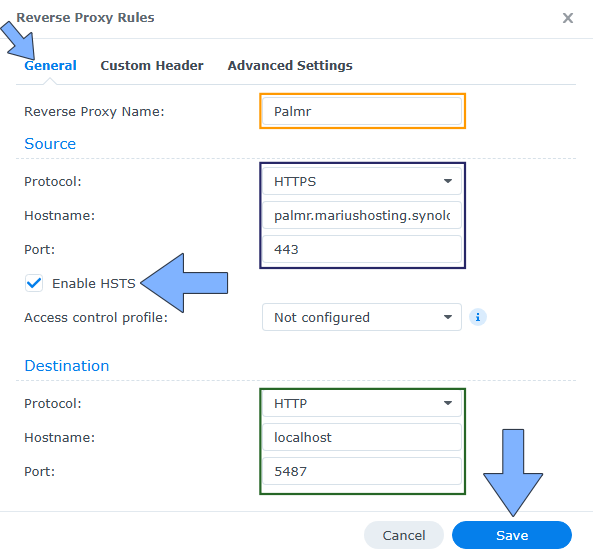
STEP 7
On the Reverse Proxy Rules click the Custom Header tab. Click Create and then, from the drop-down menu, click WebSocket. After you click on WebSocket, two Header Names and two Values will be automatically added. Click Save. Follow the instructions in the image below.

STEP 8
Go to Control Panel / Network / Connectivity / Check Enable HTTP/2 then click Apply. Follow the instructions in the image below.
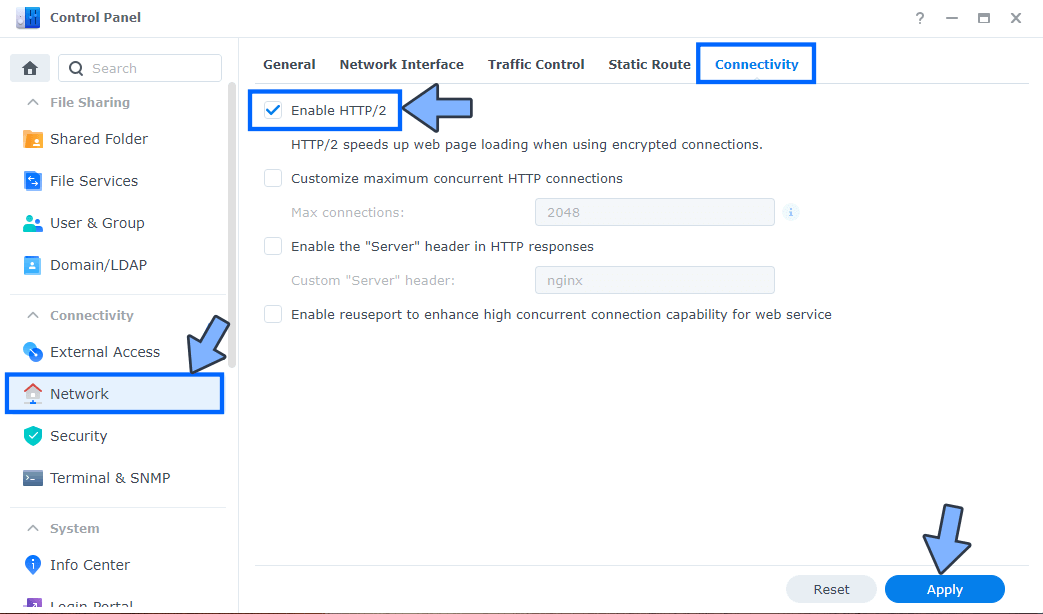
STEP 9
Go to Control Panel / Security / Advanced tab/ Check Enable HTTP Compression then click Apply. Follow the instructions in the image below.
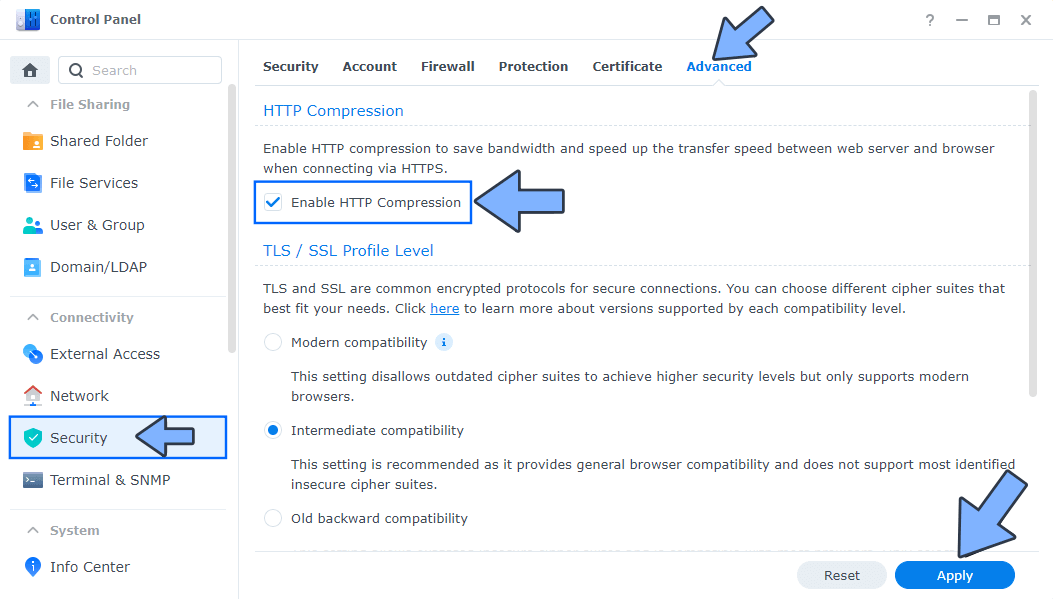
STEP 10
Go to File Station and open the docker folder. Inside the docker folder, create one new folder and name it palmr. Follow the instructions in the image below.
Note: Be careful to enter only lowercase, not uppercase letters.
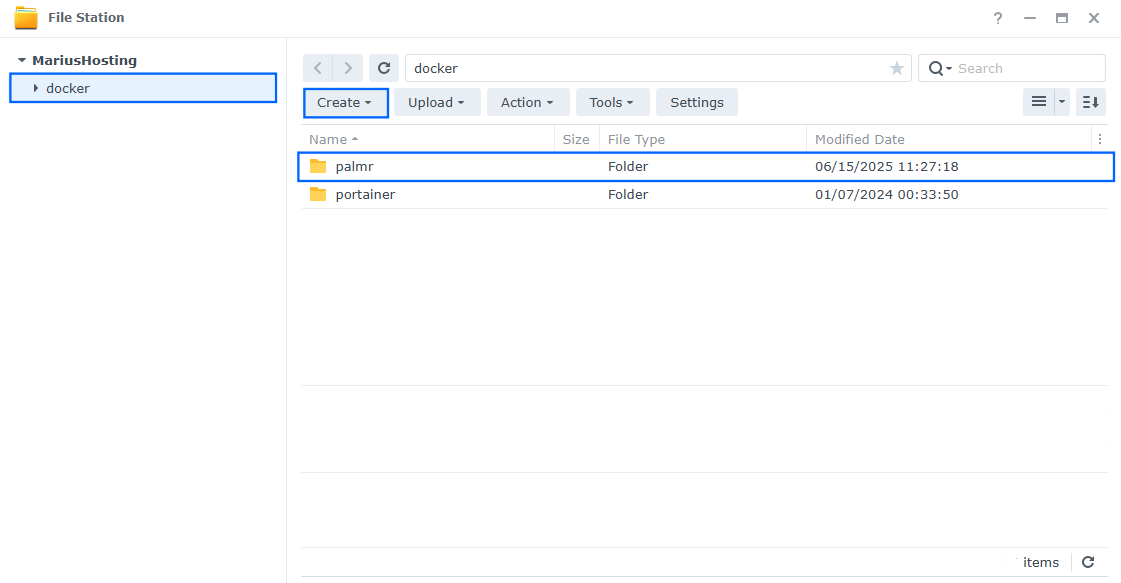
STEP 11
Log into Portainer using your username and password. On the left sidebar in Portainer, click on Home then Live connect. Follow the instructions in the image below.

On the left sidebar in Portainer, click on Stacks then + Add stack. Follow the instructions in the image below.

STEP 12
In the Name field type in palmr. Follow the instructions in the image below.
services:
palmr:
image: kyantech/palmr:latest
container_name: Palmr
healthcheck:
test: ["CMD-SHELL", "nc -z 127.0.0.1 5487 || exit 1"]
interval: 10s
timeout: 5s
retries: 3
start_period: 90s
environment:
ENABLE_S3: false
ENCRYPTION_KEY: dOxZYTTZgXKMHkqLBIQVImayQXAVWdzGBPuFJKggzcgvgPJPXpWzqzKaUOIOGGIr
PALMR_UID: 1026
PALMR_GID: 100
SECURTE_SITE: true #or false if you are not using synology.me REVERSE PROXY.
ports:
- 5487:5487
- 3333:3333
volumes:
- /volume1/docker/palmr:/app/server:rw
restart: on-failure:5
Note: Before you paste the code above in the Web editor area below, change the value for ENCRYPTION_KEY. (Generate your own Random 64 length ENCRYPTION_KEY.)
Note: Before you paste the code above in the Web editor area below, change the value numbers for PALMR_UID and PALMR_GID with your own values. (Follow my step by step guide on how to do this.) 1026 is my personal UID value and 100 is my personal GID value. You have to type in your own values.
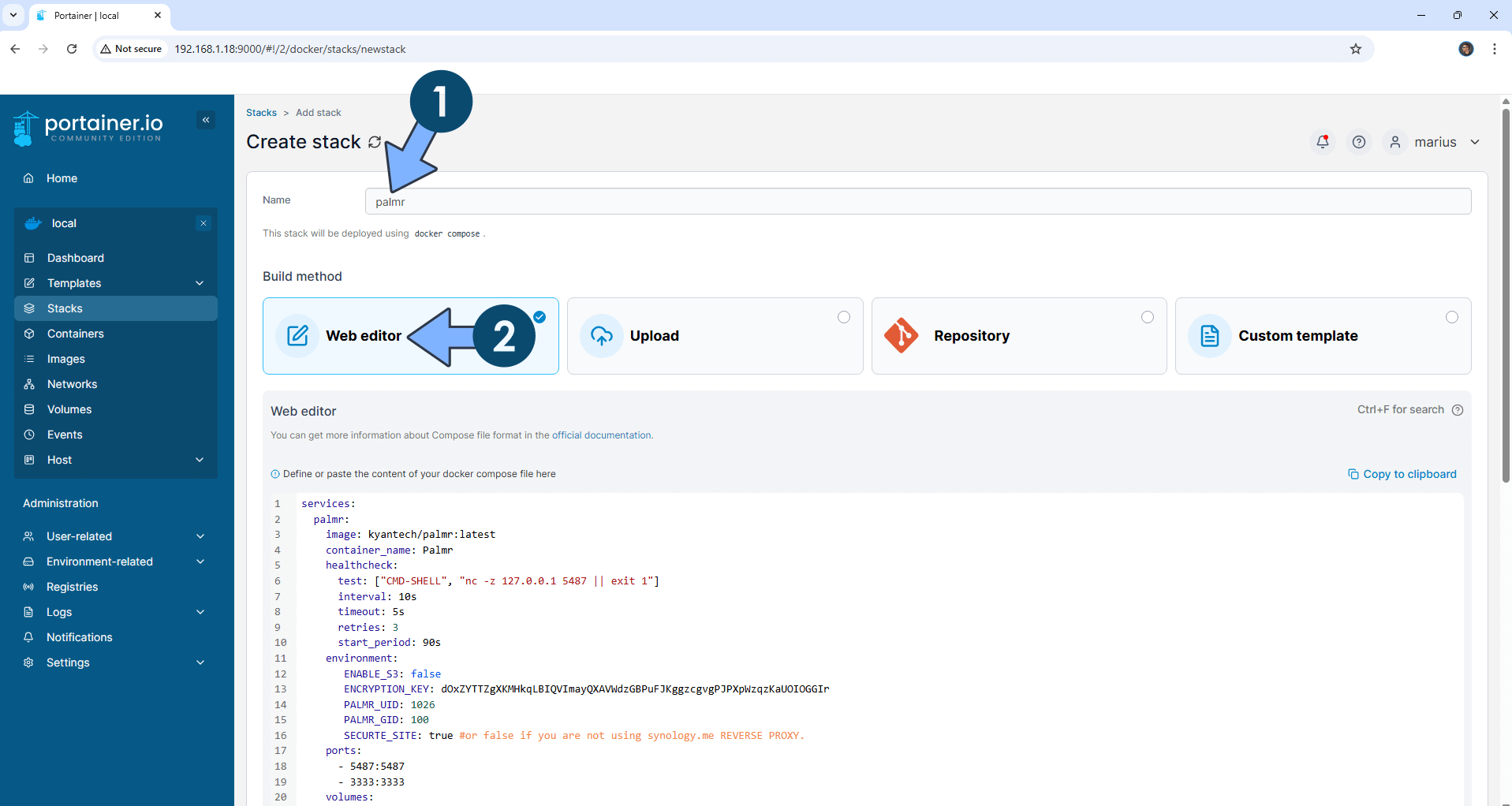
STEP 13
Scroll down on the page until you see a button named Deploy the stack. Click on it. Follow the instructions in the image below. The installation process can take up to a few minutes. It will depend on your Internet speed connection.
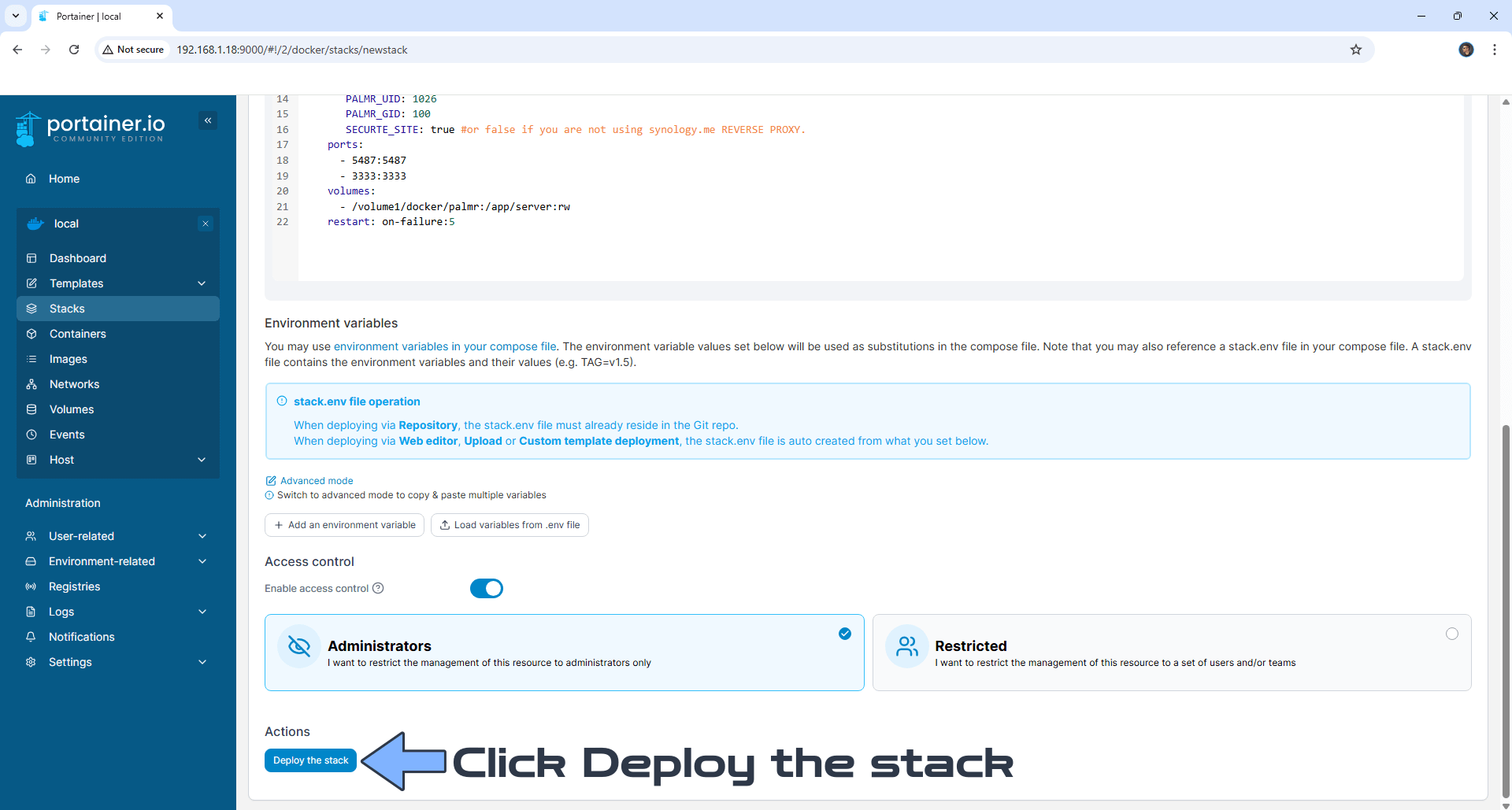
STEP 14
If everything goes right, you will see the following message at the top right of your screen: “Success Stack successfully deployed“.

STEP 15
🟢Please Support My work by Making a Donation. Almost 99,9% of the people that install something using my guides forget to support my work, or just ignore STEP 1. I’ve been very honest about this aspect of my work since the beginning: I don’t run any ADS, I don’t require subscriptions, paid or otherwise, I don’t collect IPs, emails, and I don’t have any referral links from Amazon or other merchants. I also don’t have any POP-UPs or COOKIES. I have repeatedly been told over the years how much I have contributed to the community. It’s something I love doing and have been honest about my passion since the beginning. But I also Need The Community to Support me Back to be able to continue doing this work.
STEP 16
Now open your browser and type in your HTTPS address like this https://palmr.yourname.synology.me In my case it’s https://palmr.mariushosting.synology.me If everything goes right, you will see the Palmr login page. At the top left of the page, click Login. Follow the instructions in the image below.
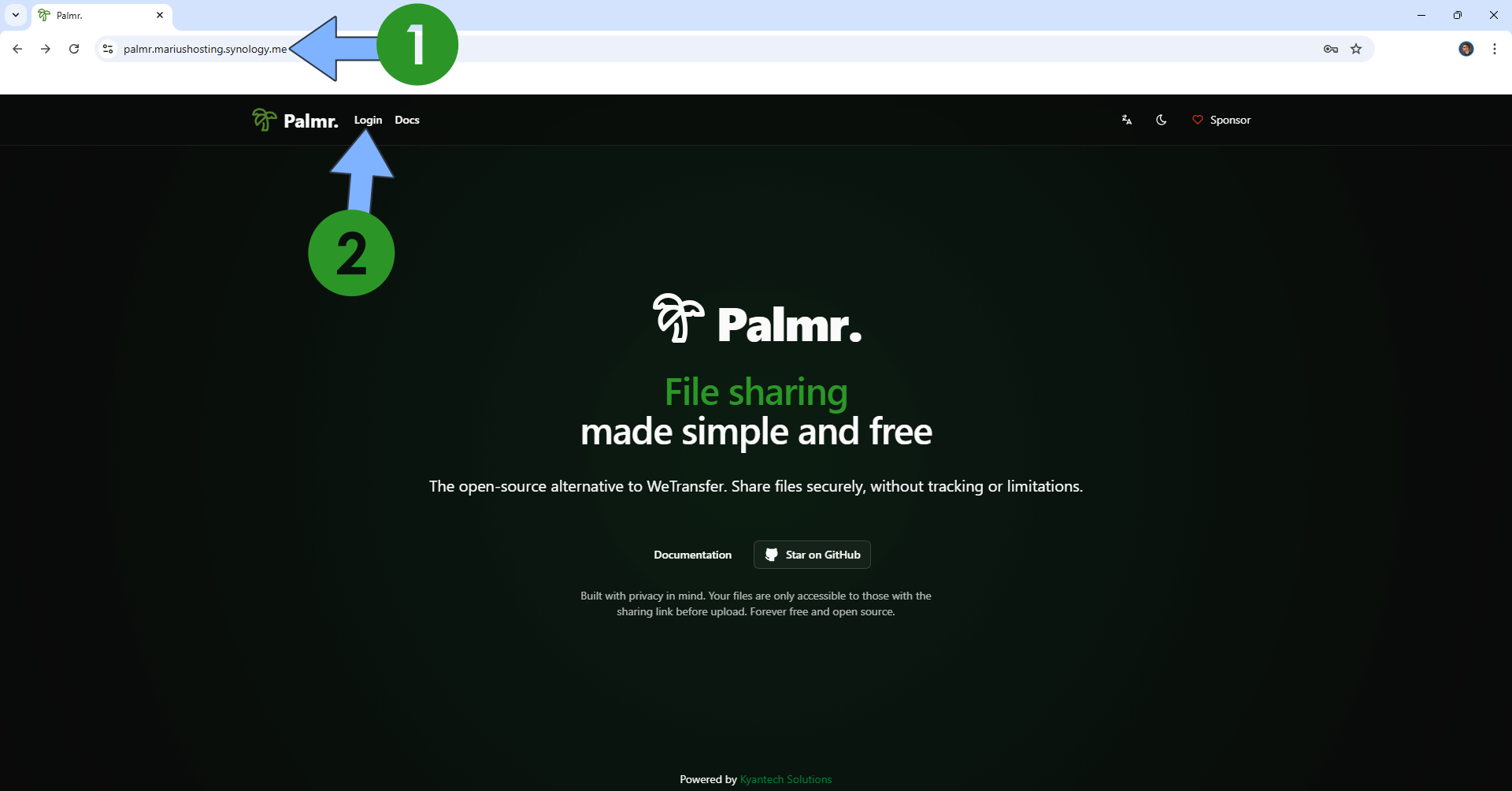
STEP 17
Create your Administrator account. Add your own info. Click Create Admin Account. Follow the instructions in the image below.
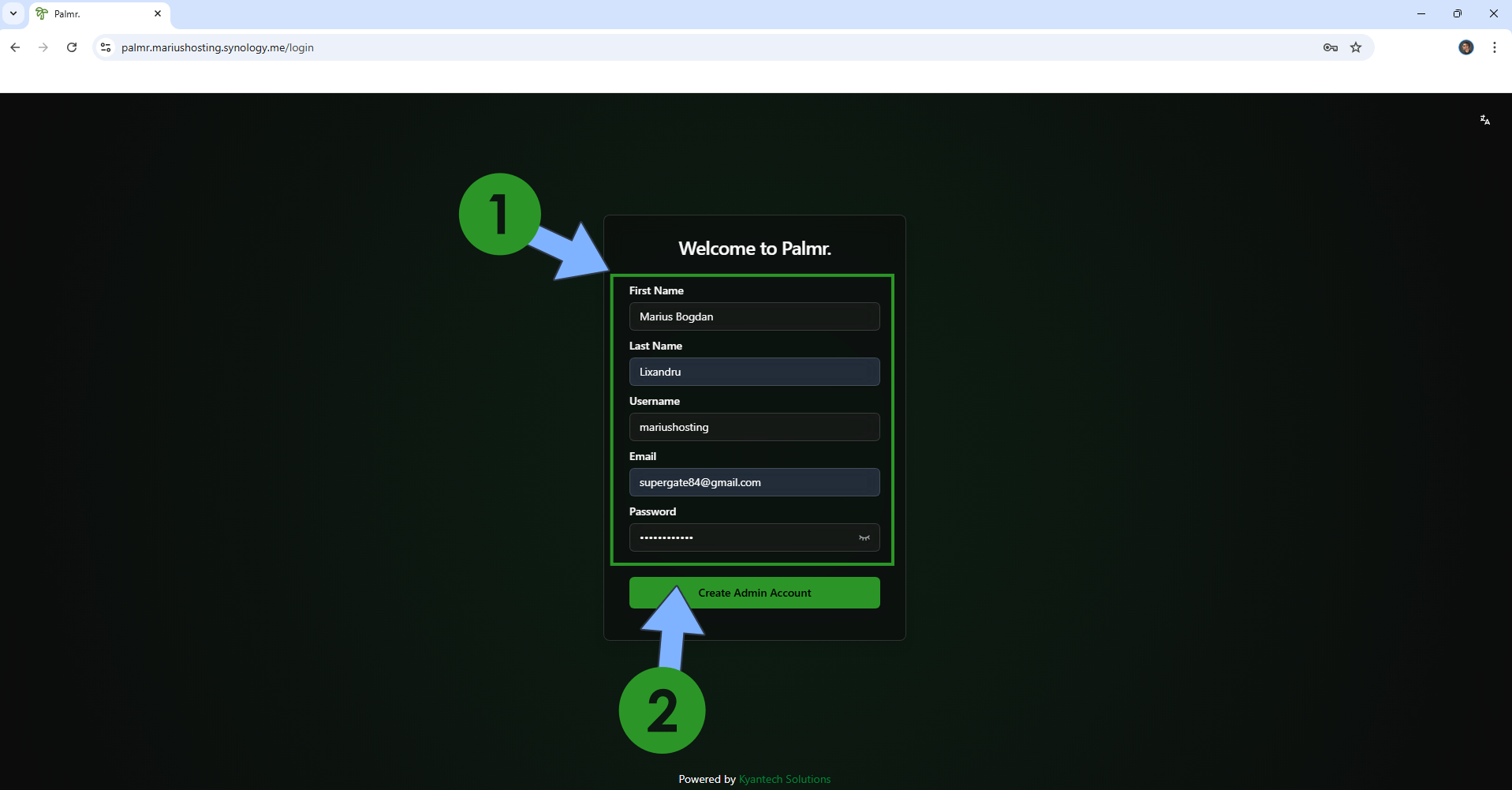
STEP 18
Type in your own Email Address and Password that you have previously added at STEP 17. Click Sign In. Follow the instructions in the image below.
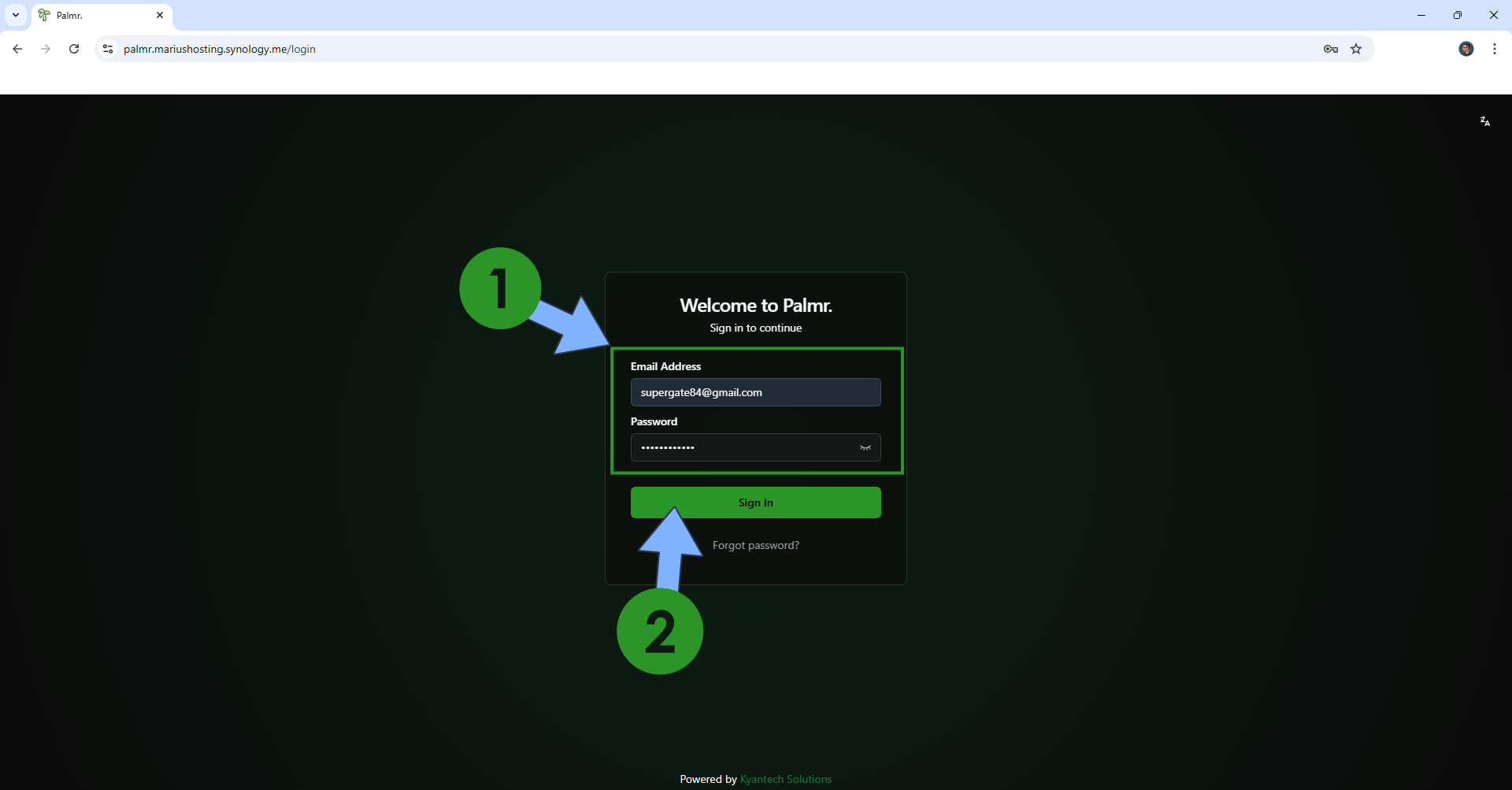
STEP 19
Click Upload File to upload your own files. Follow the instructions in the image below.
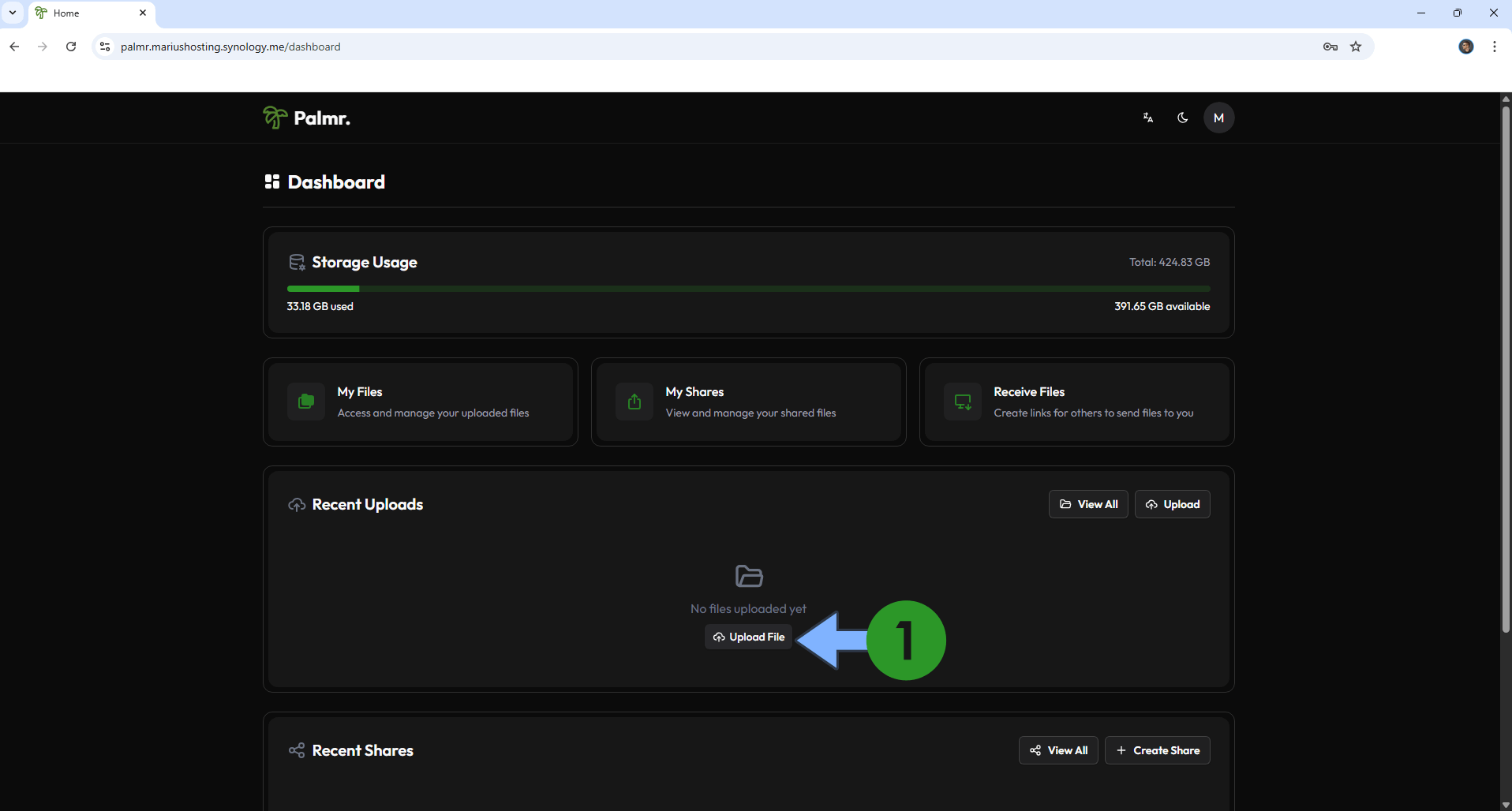
STEP 20
Drag and drop your files. Follow the instructions in the image below.
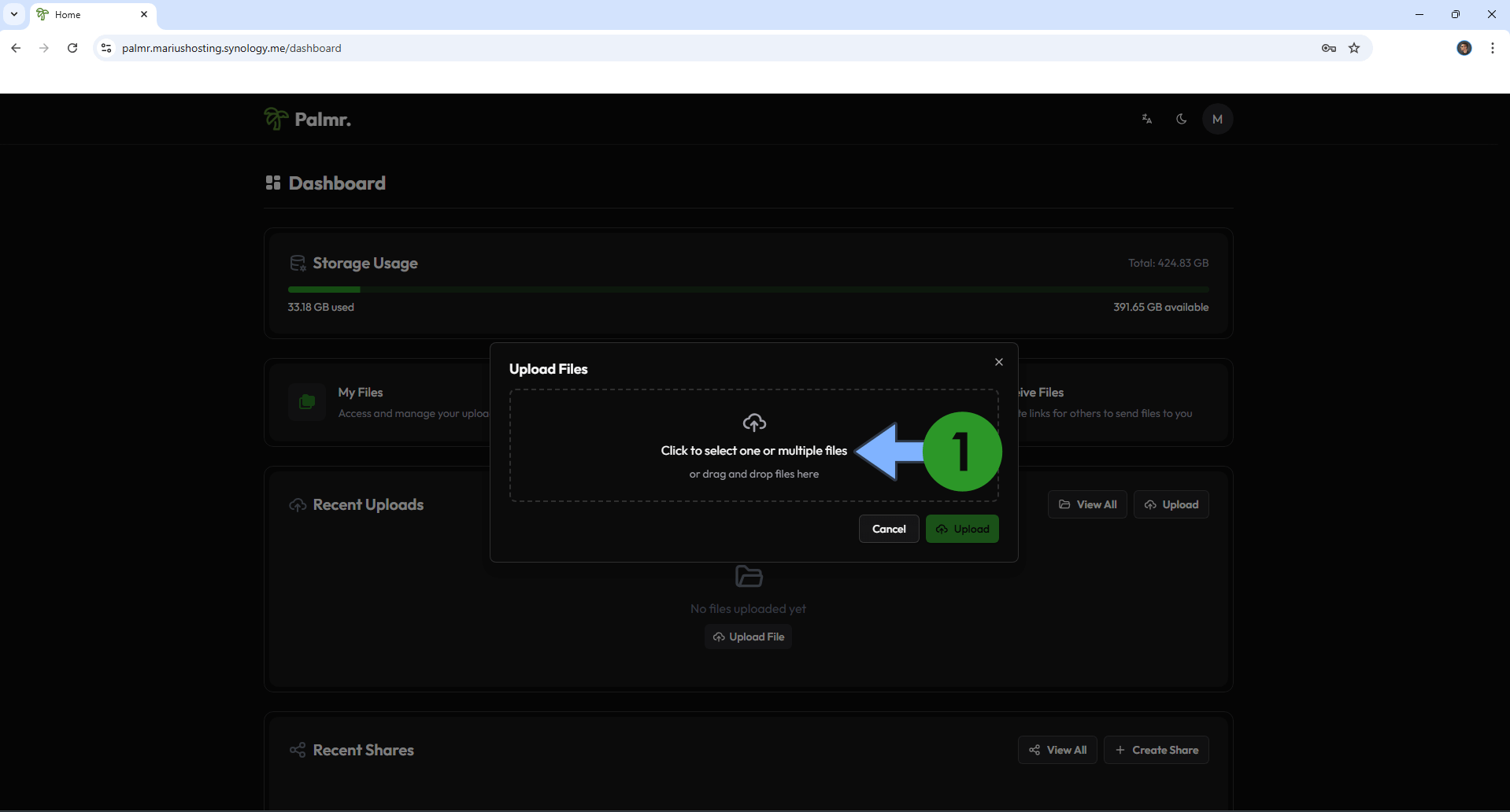
STEP 21
Click Start Uploads. Follow the instructions in the image below.
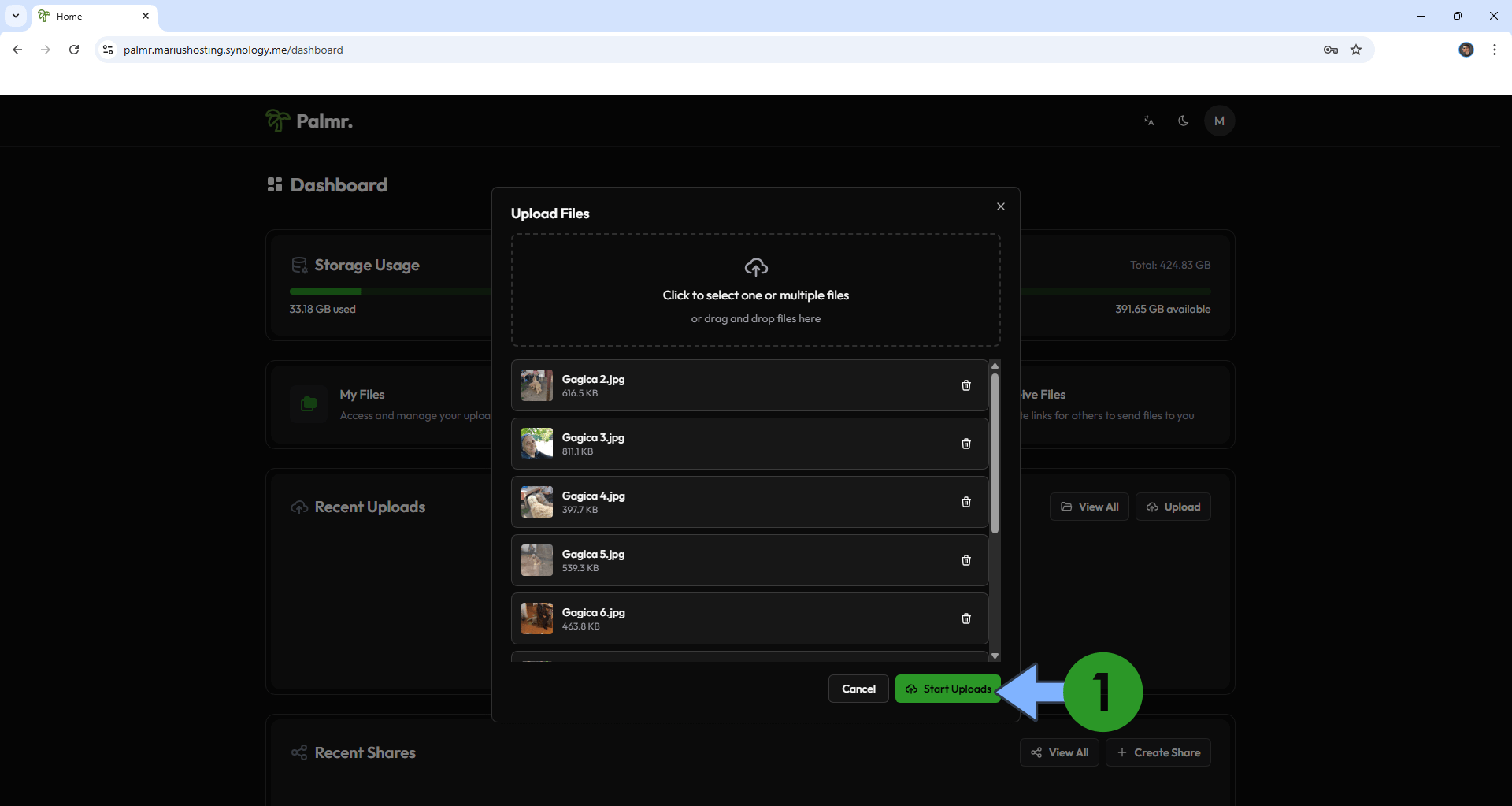
STEP 22
Click Finish. Follow the instructions in the image below.
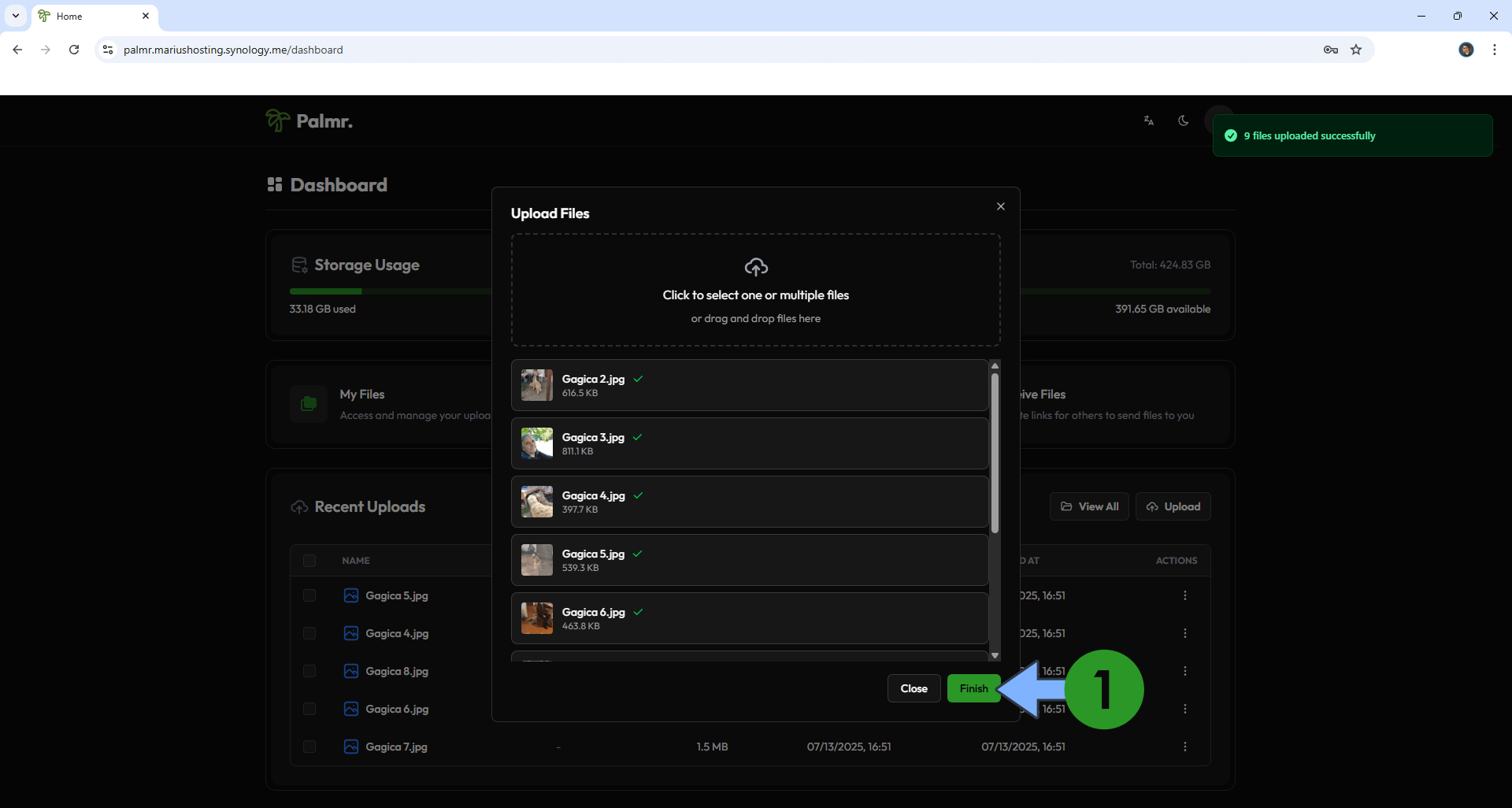
STEP 23
On the file that you want to share, click on the 3 vertical dots, then Share. Follow the instructions in the image below.
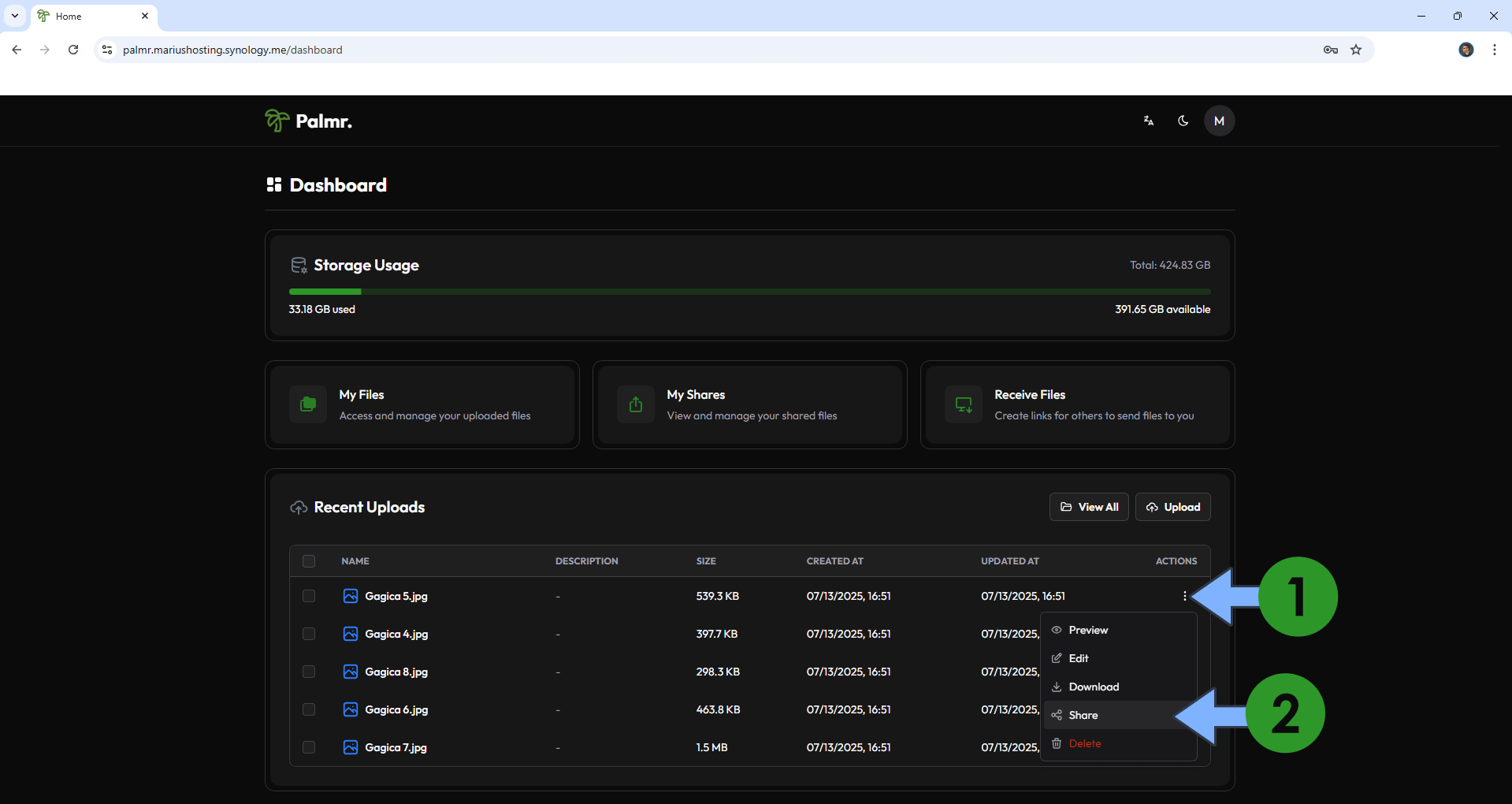
STEP 24
Type in your own File Details, then click Create Share. Follow the instructions in the image below.
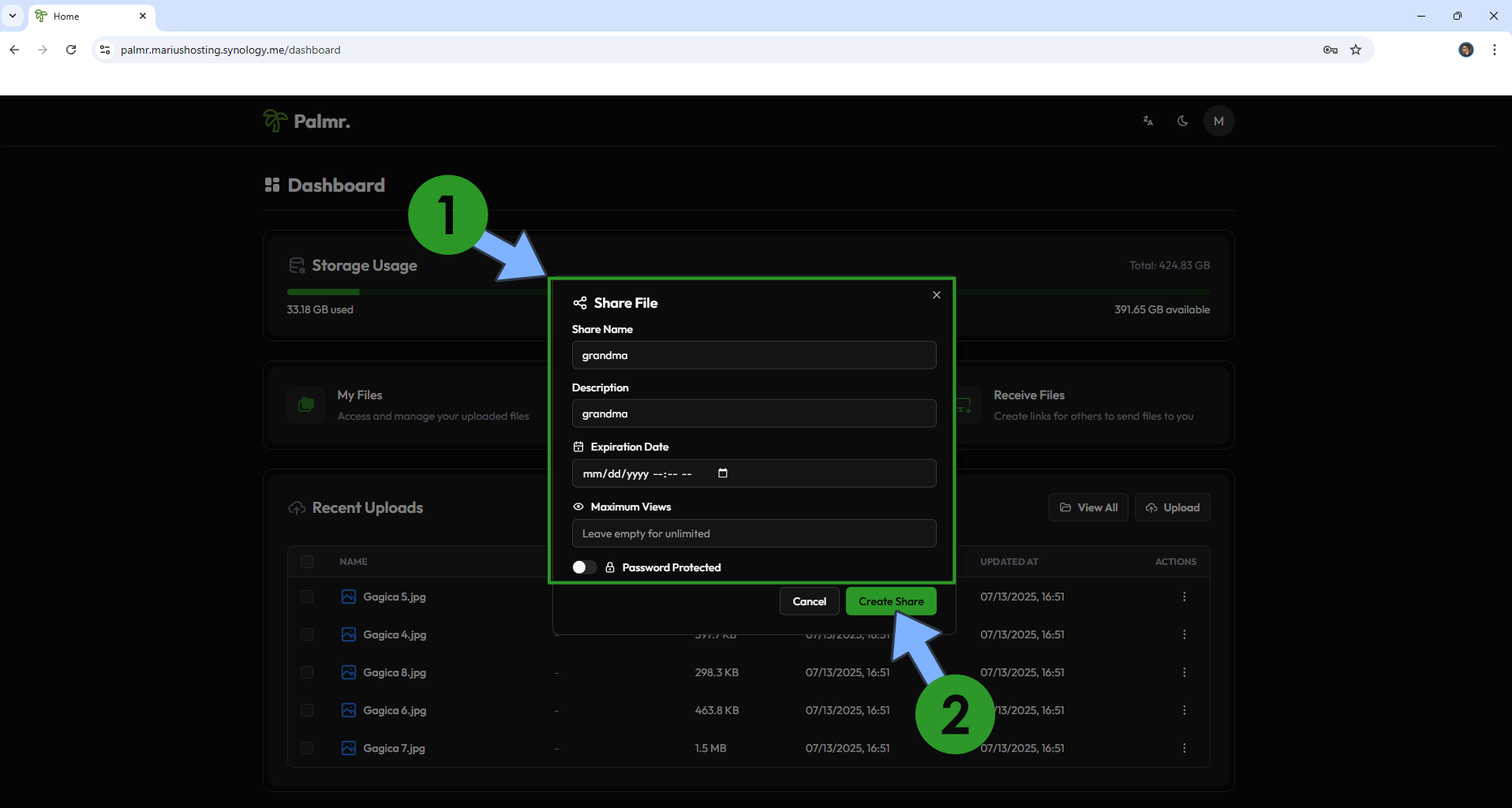
STEP 25
Type in a Link Alias, then click Generate Link. Follow the instructions in the image below.
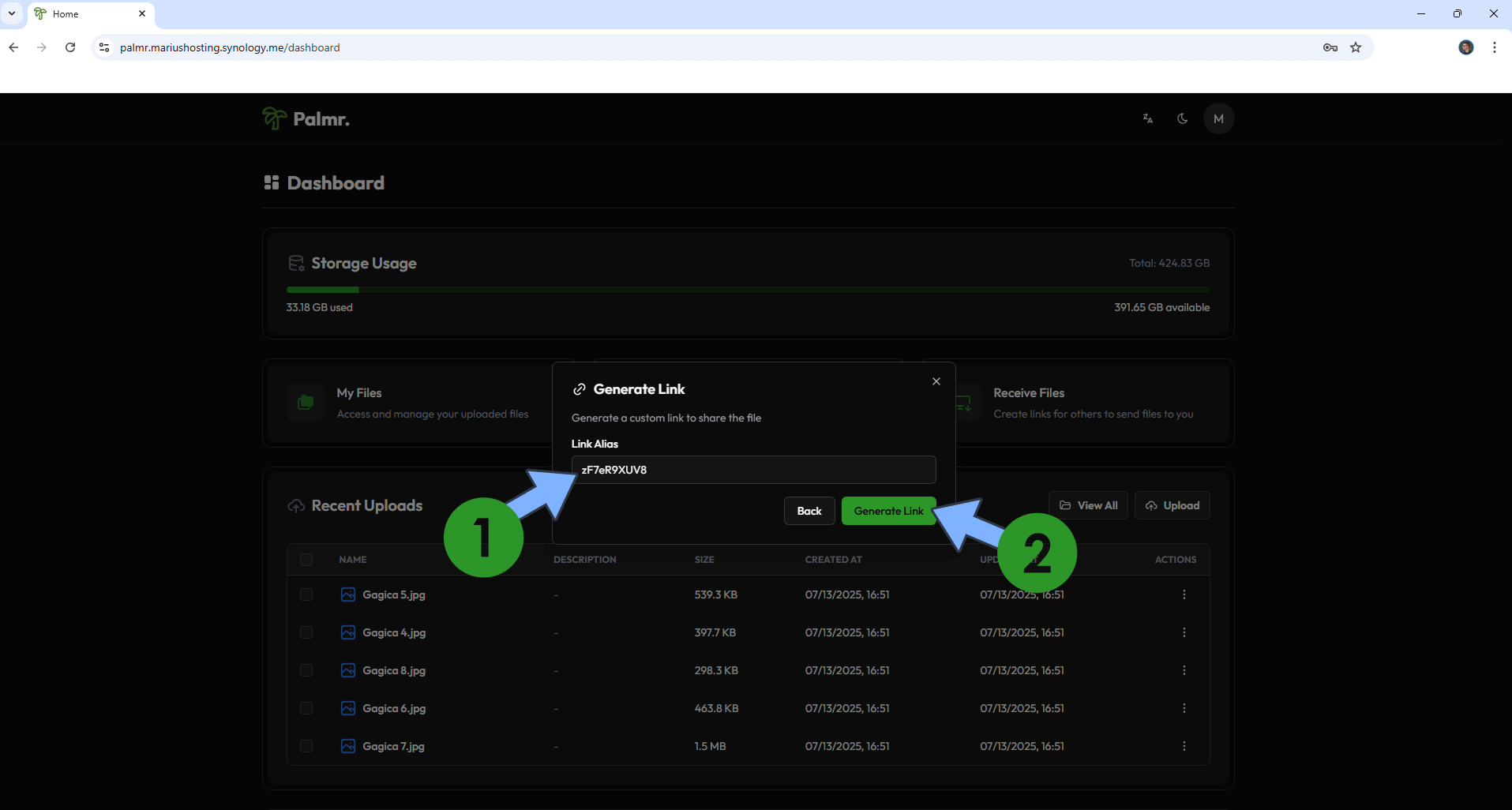
STEP 26
Copy your auto-generated link. Follow the instructions in the image below.
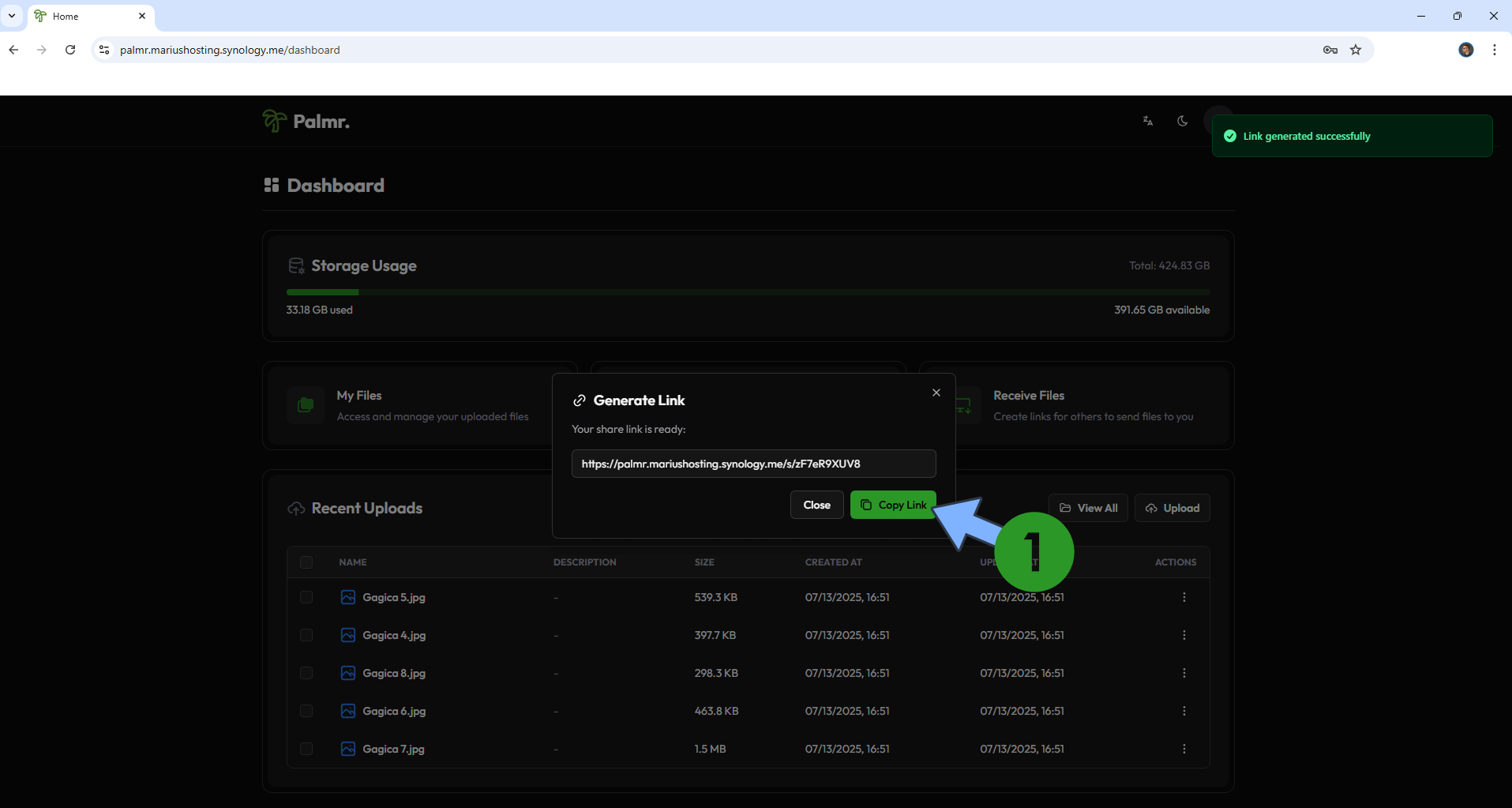
STEP 27
Share the link with your friends! Follow the instructions in the image below.
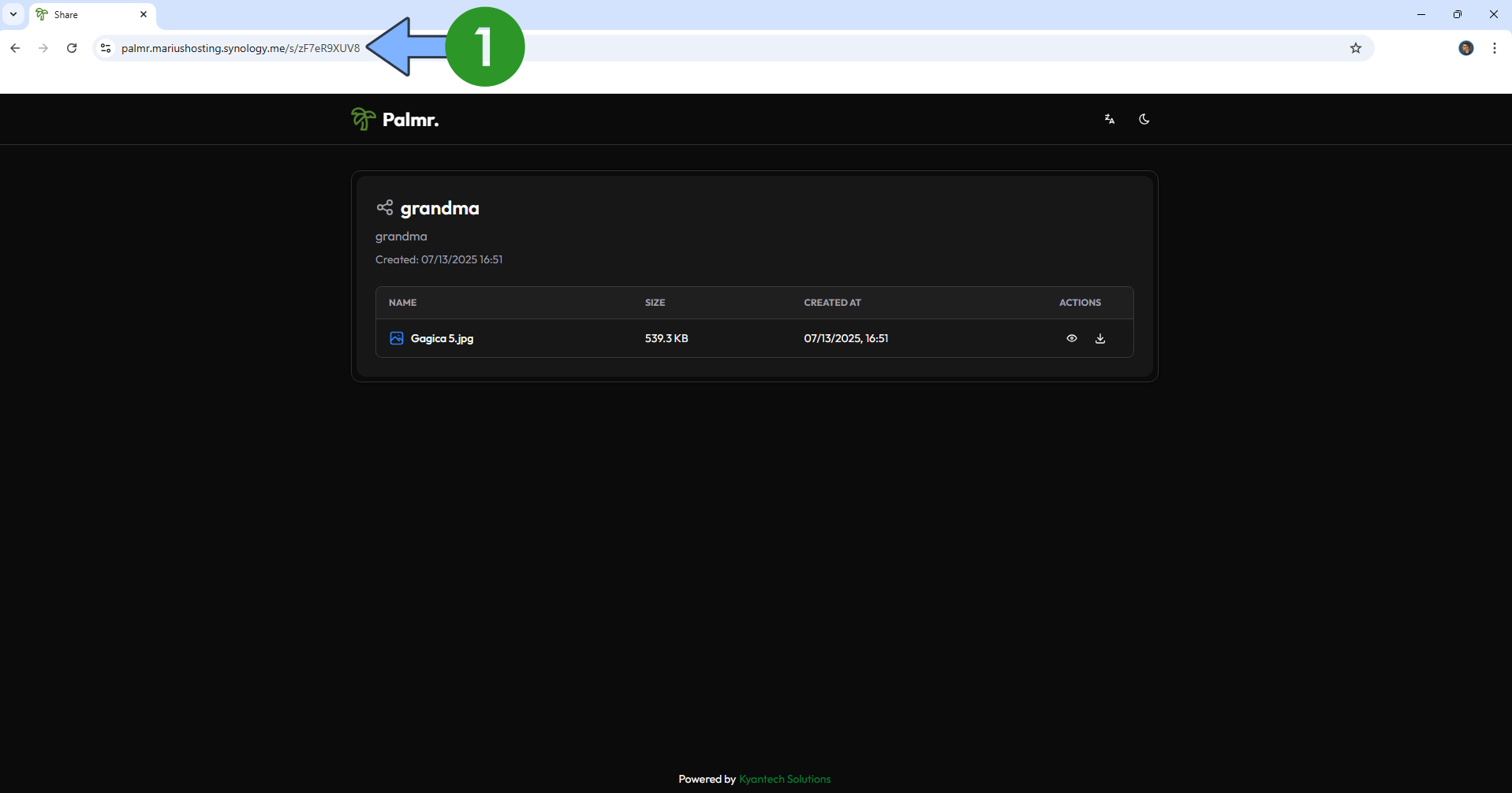
STEP 28
Check out How to Set up Email Notifications on Palmr.
Enjoy Palmr!
If you encounter issues by using this container, make sure to check out the Common Docker issues article.
⚠️Warning: If you experience permissions issues, and you can’t create your Administrator user at STEP 17, add Everyone permission (read/write) to the palmr folder in File Station like in this other article from STEP 5 to STEP 9.
Note: Find out how to update the Palmr container with the latest image.
Note: How to Back Up Docker Containers on your Synology NAS.
Note: Can I run Docker on my Synology NAS? See the supported models.
Note: How to Free Disk Space on Your NAS if You Run Docker.
Note: How to Schedule Start & Stop For Docker Containers.
Note: How to Activate Email Notifications.
Note: How to Add Access Control Profile on Your NAS.
Note: How to Change Docker Containers Restart Policy.
Note: How to Use Docker Containers With VPN.
Note: Convert Docker Run Into Docker Compose.
Note: How to Clean Docker.
Note: How to Clean Docker Automatically.
Note: Best Practices When Using Docker and DDNS.
Note: Some Docker Containers Need WebSocket.
Note: Find out the Best NAS Models For Docker.
Note: Activate Gmail SMTP For Docker Containers.
This post was updated on Saturday / December 13th, 2025 at 9:02 PM
